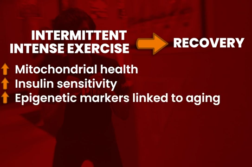NASHVILLE, Tenn. (Ivanhoe Newswire) — Everyone knows that smoking cigarettes increases your chances of lung cancer, heart disease, and early death. But one researcher says that nicotine, the addictive substance found in cigarettes, may actually have some surprising benefits.
When Reece Dean started to experience changes in his mood, he never thought it would lead to a diagnosis of mild cognitive decline, the early stages of dementia.
Dean’s wife Mary Ann Dean told Ivanhoe, “He was very irritable and explosive almost at times.”
Mary Ann saw a flyer for the MIND study, which stands for memory improvement through nicotine dosing.
“What nicotine does is it imitates the action of a normally-occurring chemical in the brain that’s important for signaling. It’s called acetylcholine,” explained Paul Newhouse, MD, Director of the Vanderbilt Center for Cognitive Medicine at Vanderbilt University Medical Center.
Acetylcholine is important for learning, memory and attention.
“Nicotine can help imitate the actions of acetylcholine when it’s being degraded by Alzheimer’s disease,” Dr. Newhouse said.
Dr. Newhouse treated 74 patients and with the skin patch version of nicotine on a daily basis for six months. He saw improvements in attention and memory. But with nicotine having a reputation for being bad for your health, can it really be good for your brain?
“Well I’m an ex-smoker, so why do I want to put nicotine back in my system because that would make me want to crave a cigarette,” Reece said.
“The answer seems to be that if you give it through the skin, you don’t have any of those kinds of problems,” Dr. Newhouse said.
Dr. Newhouse has not seen any habit-forming problems in his patients. Also Mary Ann, who doesn’t know whether her husband got the patch or the placebo in an ongoing study, says she got her husband back.
“His personality went back to being how he used to be, so we felt pretty sure that he did not have the placebo,” Mary Ann said.
Dr. Newhouse does not get any funding from the tobacco industry and does not consider the results an endorsement for smoking. The patch is not a cure, but it helps with symptoms making life enjoyable. Dr. Newhouse is still enrolling patients for his current trial for the MIND study. The trial is restricted to patients with mild cognitive decline and not those with late stage dementia. To learn more information or find a study site near you visit www.mindstudy.org .
Contributors to this news report include: Milvionne Chery, Producer; Roque Correa, Videographer; Ken Ashe, Editor.
To receive a free weekly e-mail on Medical Breakthroughs from Ivanhoe, sign up at: http://www.ivanhoe.com/ftk
MEDICAL BREAKTHROUGHS
RESEARCH SUMMARY
TOPIC: THE GOOD SIDE OF NICOTINE
REPORT: MB #4697
BACKGROUND: Mild cognitive impairment (MCI) is the stage between the expected cognitive decline of normal aging and the more serious decline of dementia. It can involve issues with memory, language, thinking and judgment that are serious enough to interfere with everyday activities. Common symptoms include forgetting things such as important events, a train of thought, a conversation, having a hard time making decisions and finding your way around, showing poor judgement, and becoming depressed or anxious. MCI can develop from a similar type of brain change seen in Alzheimer’s disease or other forms of dementia.
DIAGNOSING: Doctors determine MCI depending on the information the patient provides. If you have issues with memory declining over time but your mental function and daily activity aren’t impaired, you may be diagnosed with MCI. Other tests include neurological exams for your reflexes, eye movement, and balance, blood tests, a MRI or CT scan to show images of your brain, and mental status tests.
NEW TECHNOLOGY: A study using nicotine patches has shown that patients with MCI have significant increases in memory and attention. Scientists at Vanderbilt University developed a nicotine patch after discovering that nicotine stimulates a receptor for acetylcholine, a neurotransmitter, which aids in thinking and memory. They tested seventy-four MCI patients, split them in half, and had one group use the nicotine patch while the other group used a placebo patch. Six months later, the scientists collected results. Those with the nicotine showed vast signs of improvement. The patch works better on those with MCI rather than Alzheimer’s because at that stage, there have been too many receptors lost in the brain and the nicotine is not as effective.
(Source: https://www.wamc.org/post/dr-paul-newhouse-vanderbilt-university-nicotine-and-memory)
FOR MORE INFORMATION ON THIS REPORT, PLEASE CONTACT:
Amy Boegel
615-875-0955
Craig Boerner
If this story or any other Ivanhoe story has impacted your life or prompted you or someone you know to seek or change treatments, please let us know by contacting Marjorie Bekaert Thomas at mthomas@ivanhoe.com




